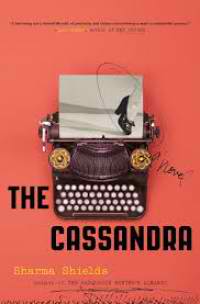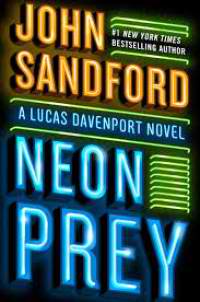The Cassandra by Sharma Shields
 Wednesday, May 1, 2019 at 8:13AM
Wednesday, May 1, 2019 at 8:13AM 
Published by Henry Holt and Co. on February 12, 2019
The moral issues surrounding the development of atomic bombs in World War II are at the heart of The Cassandra. The central theme, however, is the way in which women’s lives were defined by men during the 1940s.
Mildred Groves has had visions of the future all her life. Since the visions are ugly, they made her unpopular and she learned to shut up about them. She is like Cassandra, a gifted prophet no one believed. Paradoxically, her gift makes her special but she wants nothing more than to be insignificant.
Mildred abandons her controlling mother and joins the Women’s Army Corps as a typist in 1944. Mildred’s mother hasn’t been well since Mildred pushed her into the river, but Mildred has had enough of her whining. Mildred leaves her small town in Central Washington to work at the Hanford Site, a newly constructed nuclear production facility. The work at the site is classified, so Mildred knows only that the workers are making an important contribution to the war effort.
Mildred’s visions become more powerful after she begins her work. She doesn’t connect the skulls and melting men in her visions to radiation, but she knows that she is seeing their future. Mildred has also started sleepwalking on perilous paths, but her new frenemy Beth is keeping an eye on her. The local doctor chalks it up to hysteria, which he regards as a common affliction of women. But how can anyone account for the coyote and rattlesnake and meadowlark who turn up to guide (or mislead) Mildred?
Mildred raises questions about soil contamination that her boss regards as impertinent for a woman to consider. He assures her that she will “go far for a woman” if she can “remain steady.” Mildred feels trivialized by everyone, even by women who work as scientists, even by Beth who seems to regard her as a puppy, adorable but simple-minded.
The Cassandra paints a sad picture of the 1940s, when women like Mildred were told they should want a husband followed by a house and children, and that employment was merely a pathway to that goal. Mildred doesn’t want the war to end, because her work gives her purpose and excitement that she never had at home.
While the story’s background is dark — women are second-class citizens, men are ravaging the environment while building a bomb that will kill millions — the plot is even darker. When Mildred becomes the victim of male violence, her experience has consequences that affect others in unexpected ways. Mildred learns the wrong lessons from her victimization — she learns to generalize her hatred — raising the question of whether Mildred will ever come to terms with her circumstances. Unfortunately, her ability to do so is complicated by the visions that haunt her. Yet the story’s ending suggests that women cannot improve their lives by becoming “vengeful, destructive, indiscriminate” — in other words, by acting like men — and that Mildred may be open to this lesson.
The story is built on ambiguities. Do Mildred's feelings for Beth include sexual attraction or simply a longing for affection? Are her visions real or is she mentally ill? While the visions seem to be real (Mildred sees future events that she probably isn’t capable of imagining), her actions near the end of the novel suggest that she has some serious mental health issues.
The story of Mildred’s job, of how she is changed by the experience of working and meeting men and living outside of her family home, and of how she responds to the knowledge that she has helped destroy millions of Japanese civilians, is compelling. The supernatural or mental health element — whatever the the conversations with a heron and rattlesnake are meant to be — detract more than they add to an otherwise strong story. To the extent that Mildred’s visions are a product of mental illness, however, it is easy to understand how she views her own violent victimization as punishment for the harm she unwittingly helped the government unleash in Hiroshima and Nagasaki.
The story also works as a reminder of how plutonium production at Hanford harmed the community with contaminated groundwater, rivers, and air. The site is still hazardous decades after serious cleanup efforts began. Cancers, sterility, miscarriages, and other injuries were largely ignored or denied by the government, or chalked up as the price of winning the war. The novel is dark but the darkness is appropriate to its subject matter. While I’m not sure The Cassandra is as disturbing or moving as it is meant to be, the novel illuminates important issues in the past that continue to have relevance today.
RECOMMENDED



